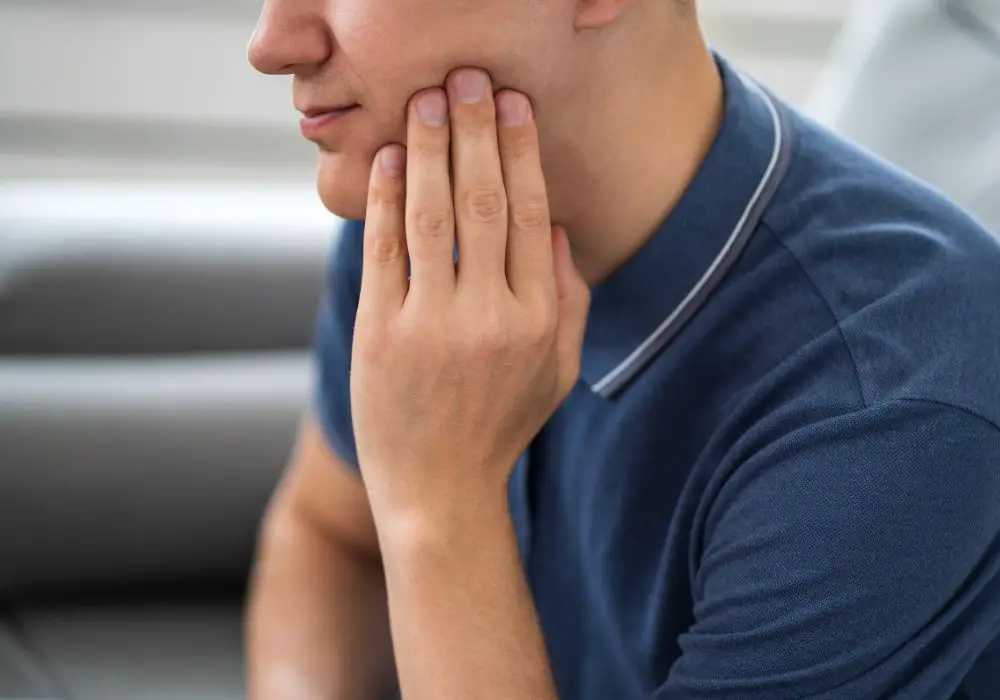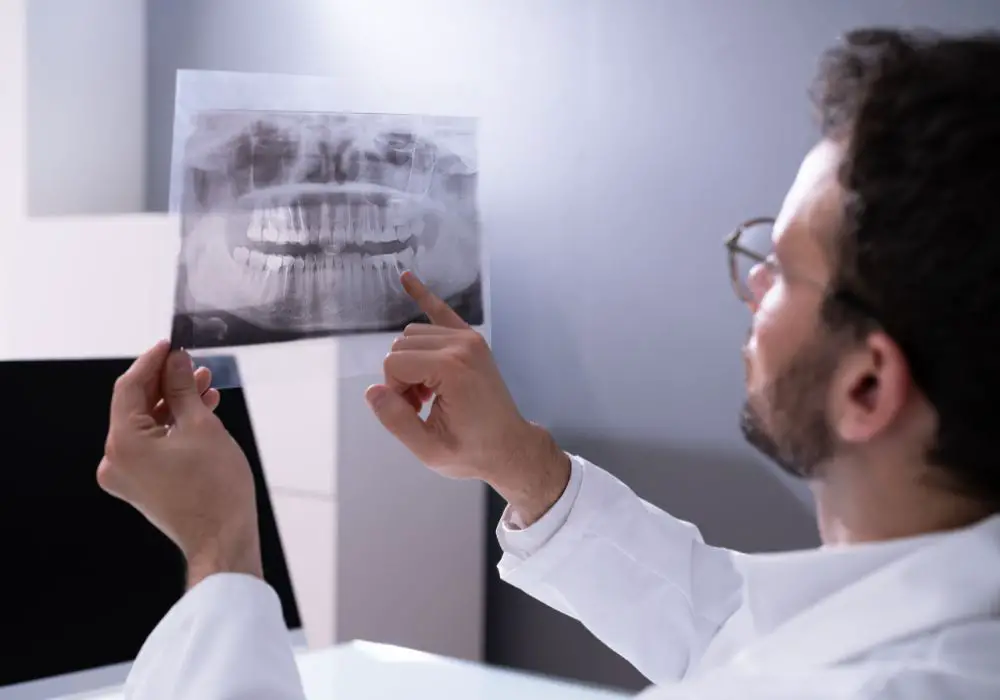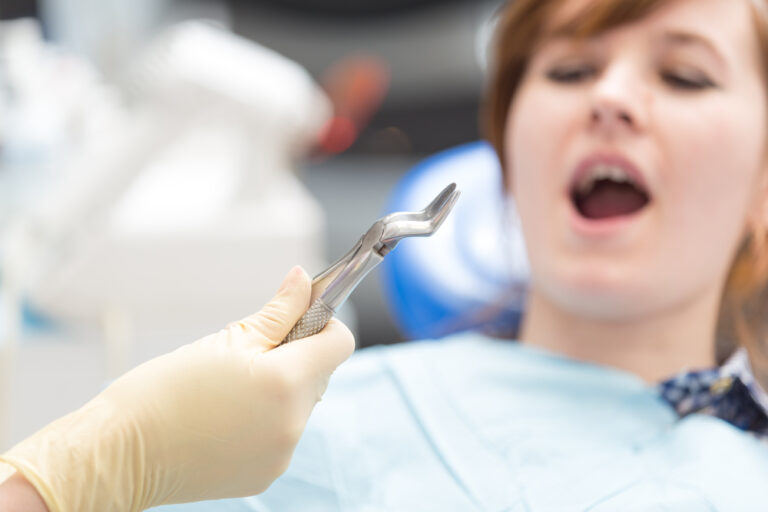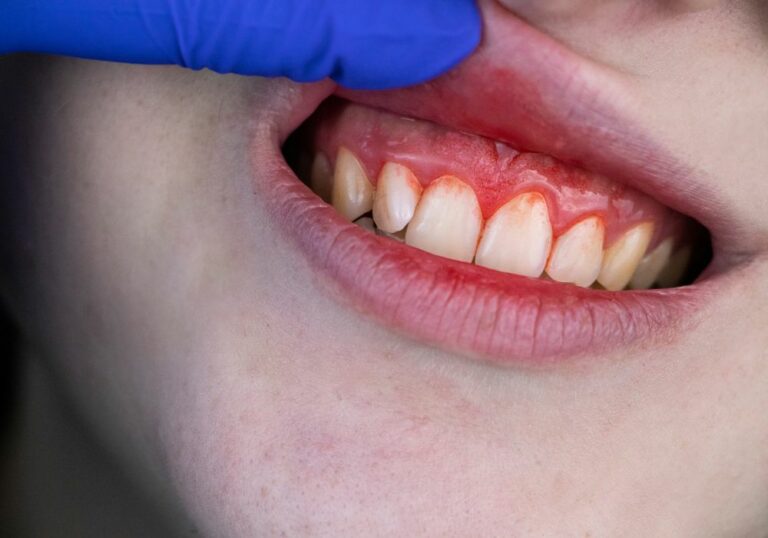Wisdom teeth, also known as third molars, are the last teeth to erupt in the mouth, usually between the ages of 17 and 25. For many people, wisdom teeth can cause extreme pain and discomfort when they start pushing through the gums. This is often due to wisdom teeth becoming impacted or not having enough room to properly emerge. When wisdom teeth cause pain, it’s important to take steps to manage the discomfort until you can see a dentist for treatment. Here are some tips for making wisdom teeth stop hurting.
Over-the-Counter Pain Relievers

Taking over-the-counter (OTC) pain medications can help temporarily relieve wisdom tooth pain. OTC pain relievers like ibuprofen (Advil, Motrin), naproxen (Aleve), and acetaminophen (Tylenol) work by blocking pain signals in the body. Follow dosage instructions carefully and avoid exceeding the recommended amounts.
Ibuprofen
Ibuprofen is an anti-inflammatory drug that can effectively reduce swelling and pain caused by emerging wisdom teeth. For adults, the recommended dosage for ibuprofen is 200 to 400mg every 4 to 6 hours, not to exceed 3,200mg per day. For severe pain, 600 to 800mg may be taken at the onset, followed by 200 to 400mg every 6 to 8 hours as needed. Ibuprofen is best absorbed when taken with food. For those with sensitive stomachs, enteric coated tablets can help reduce chances of gastrointestinal discomfort. Those with health conditions should check with a doctor before taking ibuprofen.
Acetaminophen
Acetaminophen is a milder over-the-counter pain reliever. The recommended adult dosage for wisdom tooth pain is 325 to 650mg every 4 to 6 hours, not to exceed 4000mg per day from all sources. Extended release acetaminophen tablets may allow for less frequent dosing. This drug can cause liver damage at high doses, particularly with long-term use or in those who drink alcohol. It’s important not to exceed the recommended dosing.
Naproxen Sodium
Naproxen sodium is an anti-inflammatory pain reliever that may last longer than other OTC meds, up to 12 hours with one dose. The recommended dosage for adults is 220 to 440mg every 8 to 12 hours as needed for pain. Don’t exceed 1,320mg in a 24 hour period. Those with heart disease or hypertension should not take naproxen without medical approval. Naproxen sodium tablets should be taken with food or milk to reduce stomach upset.
Cold Compresses
Applying cold compresses to the outside of the cheek near the impacted wisdom tooth can help reduce inflammation and pain. Wrap an ice pack or partially frozen water bottle in a thin towel and apply to the affected area for 10-15 minutes at a time. Reapply the cold compress every hour as needed for pain relief. Icing for 20 minutes on and 20 minutes off may also be effective. Don’t apply anything frozen directly on bare skin. Cold therapy helps constrict local blood vessels and slow down the inflammatory response.
Salt Water Rinse
Gently rinsing with a warm salt water solution can help soothe wisdom tooth pain and keep the area clean. Dissolve 1/2 to 1 teaspoon of salt in an 8 ounce glass of warm water, creating a saline solution. Swish this solution in the mouth for 30 to 60 seconds at a time, focusing on the painful wisdom tooth area. Spit out the salt water and repeat 2 to 3 times daily, especially after meals and before bed when oral hygiene is most important. The salt helps draw out fluid and reduces swelling around the erupting wisdom tooth.
Dental Wax
If a wisdom tooth is erupting through the gums, using orthodontic wax can protect the irritated area from additional injury. Apply a small amount of the wax directly over the sharp edges of the emerging wisdom tooth to cushion the inflamed gum tissue. Reapply as often as needed to prevent friction and rubbing of the gums. This can reduce pain from brushing or eating. The wax creates a barrier and helps gums heal faster. Look for orthodontic wax sold by dental product brands.

Avoid Certain Foods
Sticking to a soft foods diet can help minimize pain when eating with sore, erupting wisdom teeth. Cold, lukewarm, or room temperature foods are best. Examples include applesauce, yogurt, ice cream, milkshakes, protein shakes, scrambled eggs, oatmeal, mashed cauliflower, broth-based soups, Jello, and pudding. Avoid excessively hot, spicy, crunchy, or acidic foods like chips, nuts, raw vegetables, and citrus fruits that could further irritate and inflame gum tissue.
Proper Oral Hygiene
It’s crucial to maintain proper oral hygiene when wisdom teeth are painful. Food particles trapped around partially emerged teeth increase the risk of infection. Gently brush using a soft toothbrush and antibacterial toothpaste 2-3 times daily, taking care around inflamed gums. Water flossing may be gentler than string floss. Use antiseptic medicated mouthwash to keep the area clean. See a dentist if toothbrushing becomes too difficult and painful around wisdom teeth.
OTC Topical Anesthetics
Topical anesthetic gels, rinses, or patches containing benzocaine can temporarily numb wisdom teeth to provide short-term pain relief. Products like Orajel often contain about 20% benzocaine. Follow instructions and apply sparingly to the irritated area no more than 4 times daily, for use up to 7 days. Don’t exceed recommended dosing, as excessive absorption can cause a rare but serious reaction. Numbness from topical anesthetics wears off after an hour or so. Seek medical help if numbness persists beyond several hours and causes concern.
Avoid Smoking and Alcohol
It’s wise to avoid smoking cigarettes or drinking alcohol when suffering from painful, erupting wisdom teeth. Smoking can delay healing and worsen inflammation. Tobacco use following wisdom tooth extraction increases the risk of developing a painful dry socket. Alcohol consumption can also disrupt healing and interact poorly with prescription pain medication.
See a Dentist
If at-home remedies don’t provide lasting relief after a couple days, it’s important to make an appointment to see a dentist. Impacted or partially emerged wisdom teeth require professional dental evaluation and treatment. A dentist can take x-rays to determine if wisdom teeth are impacted or proper eruption is inhibited for other reasons. They may prescribe antibiotics or recommend extraction for problematic wisdom teeth. Impacted wisdom teeth won’t improve on their own and often worsen over time if left untreated. Addressing them early can prevent serious complications like infection, cysts, decay, or damage to adjacent teeth. Proper pain management and wisdom tooth removal can finally stop recurring discomfort.
What causes wisdom teeth to hurt?

There are several potential causes of wisdom tooth pain:
Impacted wisdom teeth
When wisdom teeth become impacted, meaning they don’t have enough room to emerge properly through the gums, it can cause extreme pain and pressure in the jaw and gums. Impacted wisdom teeth are often unable to erupt fully due to insufficient space, being blocked by other teeth, or an abnormal position. The jaw bone surrounding impacted teeth is usually too dense for the tooth to erupt through.
Pericoronitis
This refers to inflammation of the soft tissue or gum tissue surrounding the crown portion of a wisdom tooth. It often occurs when wisdom teeth only partially break through the gums, causing debris and bacteria to become trapped underneath the gum tissue flap. The bacteria can cause an infection characterized by pain, swelling, and irritation.
Gum disease and periodontitis
General gum disease (gingivitis) around wisdom teeth can cause swelling, redness, tenderness, and pain. Periodontitis is more advanced gum disease affecting the bone and supporting tooth structures. Insufficient daily brushing and flossing around partially emerged wisdom teeth increases the risk of these problems.
Tooth decay
Untreated tooth decay in wisdom teeth, just as in any other teeth, allows bacteria to infect the tooth pulp inside. This can lead to severe tooth nerve inflammation known as irreversible pulpitis. The pain is often severe and described as throbbing, lingering ache.
Dental abscess
A collection of pus caused by a bacterial infection in the gums or tooth can form an abscess, leading to throbbing pain and swelling. Abscesses commonly occur around partially emerged wisdom teeth.
Cysts
Benign fluid-filled cysts can form around impacted, partially erupted wisdom teeth due to fluid buildup from inflammation or reduced drainage. Cysts may become infected and quite painful if left untreated.
TMJ disorders
In some cases, wisdom tooth pain or discomfort can seem to radiate from problems with the TMJ (temporomandibular joint). Jaw joint disorders like arthritis, dislocation, or bruxism can all lead to various pains.
When to see a dentist for wisdom tooth pain?

It’s highly recommended to make an appointment with your dentist if you have any of the following signs and symptoms:
- Persistent, throbbing pain from wisdom teeth not subsiding with over-the-counter medication and home remedies after 48-72 hours
- Severe pain that disrupts sleep
- Red, severely inflamed gums with bleeding around the wisdom tooth
- Pus discharge from around the wisdom tooth
- Bad breath or foul metallic taste that won’t go away
- Diffuse swelling around the jaw, neck, or cheek on the side of the problematic wisdom tooth
- Severe difficulty opening the mouth or chewing because of wisdom tooth discomfort
- Fever, chills, nausea, or generally feeling unwell along with wisdom tooth pain (could signal infection)
- Actual visible wisdom tooth coming in at an odd angle, causing problems
Don’t delay in seeking dental care if any of the above symptoms are present. These can indicate an infection or abscess which requires urgent care with antibiotics and possibly wisdom tooth extraction or drainage procedures. Lingering wisdom tooth pain won’t get better on its own. Early intervention can help prevent more severe complications.
Wisdom tooth extraction recovery tips
Recovering fully after wisdom tooth extraction surgery usually takes around 1-2 weeks. Follow these tips to facilitate smooth, comfortable healing:
Rest and take it easy
Plan to take it easy for at least 3 days after the extraction procedure. Get lots of rest and avoid strenuous physical activity that could increase swelling and bleeding. Don’t resume intense exercise too soon.
Ice packs
Using ice packs can minimize facial swelling after wisdom tooth removal. Apply an ice pack wrapped in a thin towel or cloth to the outer cheek near the extraction site for 10-15 minute intervals. Alternate periods of icing with rest. Avoid direct contact of ice on bare skin.
Soft, nutritious diet
Eat only soft, mild temperature foods for the first several days. Examples include apple sauce, mashed potatoes, yogurt, oatmeal, scrambled eggs, broths, milkshakes. Avoid very hot, crunchy, chewy, spicy or acidic foods that could irritate the extraction site. Stay hydrated with water, juices, smoothies.
Salt water rinses
Gently rinse the mouth with salt water 2-3 times a day starting 24 hours after surgery to keep food debris out of extraction sites. Dissolve 1/2 teaspoon salt in warm 8 oz water. Avoid forceful spitting.
Brush teeth gently
Brush normally but be extremely gentle around extraction sites when brushing. Avoid disturbing the blood clot. Don’t floss directly on extraction sites for several days.
Take medication
Use ibuprofen, acetaminophen, or prescription pain medication as directed for post-op pain management. Take antibiotics if prescribed to prevent infection.
Don’t smoke or drink alcohol
Avoid all tobacco and alcohol use during recovery. These can delay healing and increase risks of dry socket pain complications.
See dentist if needed
Excessive bleeding, severe pain, fever, or bad taste/breath could indicate potential complications to have evaluated urgently. Follow up as scheduled for post-op checkup.
Frequently Asked Questions
How long does wisdom tooth pain last?
The duration of wisdom tooth pain varies. It may come and go sporadically over a period of weeks or months as the teeth slowly erupt through the gums. Pain and discomfort from fully impacted wisdom teeth often persists indefinitely without removal. Bacterial infections causing pain should improve within several days if treated properly with antibiotics.
Can wisdom teeth grow back after surgical extraction?
No, wisdom teeth that have been fully extracted do not grow back. The entire tooth including the roots is removed from the bone during extraction surgery, leaving no remnants behind for another wisdom tooth to develop from. In very rare cases, small root fragments may get left behind, but they do not form new teeth.
How soon can you smoke after wisdom tooth removal?
It is highly recommended to avoid all tobacco smoking for a minimum of 48 hours after wisdom tooth extraction, but longer abstinence is better. Smoking immediately after surgery raises the chances of developing the very painful complication known as dry socket. It’s best to refrain from smoking for a full week to 10 days to allow proper healing after wisdom tooth extractions or other dental procedures.
Is it ok to drink alcohol after getting wisdom teeth out?
Drinking alcoholic beverages right after wisdom tooth removal is generally not advised. At the very least, alcohol should be avoided for the first 24 hours. Alcohol can interact with pain medication, increase chances of bleeding, and delay the healing process. Moderate intake may be ok after the first day or two, but alcohol consumption always comes with an increased risk of post-extraction complications.
How can you prevent future wisdom tooth pain?
Some preventive tips include getting evaluated early before wisdom tooth issues develop, maintaining diligent oral hygiene around partially erupted teeth, quitting smoking, having wisdom teeth extracted preemptively if impaction seems likely, and regular dental exams to monitor for problems. Impacted wisdom teeth often eventually require removal even when no symptoms are present yet to avoid future complications.
What foods help relieve wisdom tooth pain?
Examples of good foods to eat when wisdom teeth hurt include:
- Cold soft foods like ice cream, frozen yogurt, popsicles
- Smoothies, protein shakes, milkshakes
- Soups, bone broths, blended vegetable purees
- Mashed potatoes or sweet potatoes
- Oatmeal, grits, cream of wheat, scrambled eggs
- Cottage cheese, macaroni and cheese
- Applesauce, bananas, peaches, soft peeled fruits
- Jello, pudding, yogurt
- Mild tomato sauces over pasta
Avoid anything too hot, crunchy, chewy, spicy, salty, or acidic. Drink plenty of water and juices.







